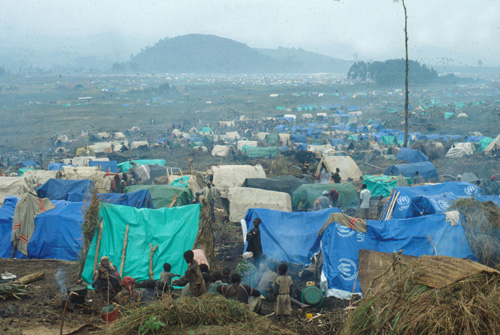The United Nations says food has now run out for the nearly 100,000 Eritrean refugees in Ethiopia’s northern Tigray area, The Associated Press/Voice of America reported.
“The camps will have now run out of food supplies – making hunger…a real danger, a warning we have been issuing since the conflict began nearly a month ago,” U.N. spokesman Babar Baloch said in Geneva on Tuesday. He added that the U.N. is worried about attacks and human rights violations at the camps.
It has been a month since Ethiopian Prime Minister Abiy Ahmed announced that fighting had started in Tigray between federal forces and local Tigray forces. Each government says the other is illegitimate after a dispute over holding elections during the coronavirus health crisis.
Communications and transportation links to the six million people who live in the Tigray area have been cut. The U.N. and others have made appeals to deliver food, medicine and other supplies.
Abiy, last year’s Nobel Peace Prize winner, has refused to negotiate with Tigray leaders. Just a few days ago, Abiy said his army was victorious, but Tigray soldiers continue to fight. Most Tigray leaders have fled the area and are in hiding.
Under growing international pressure, Ethiopia’s government has said it will permit aid to go through a “humanitarian corridor.” But the U.N. wants a neutral path to enter the area.
Ethiopia has assisted Eritrean refugees for nearly 20 years, “but now we fear they are caught in the conflict,” Baloch said.
In Tigray, the 96,000 Eritrean refugees are in a very difficult position. They live in camps in Ethiopia near the border of their homeland, Eritrea, which they fled. There are reports that some have been attacked or abducted. The U.N. has warned that any such actions would be “violations of international norms.”
Eritrea has remained almost silent as the Tigray leaders accuse it of joining the conflict at Ethiopia’s request. Abiy’s government has denied the accusation.
The U.N. said about two million people in Tigray also need assistance. Before the conflict the number was one million. In addition, one million people have lost their homes, including more than 45,000 Ethiopians who have fled into Sudan as refugees.
